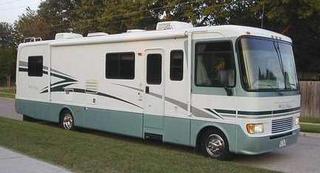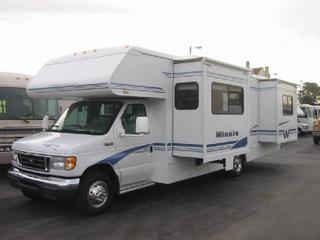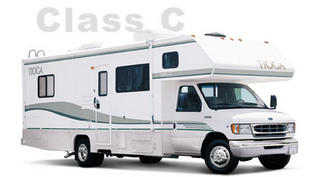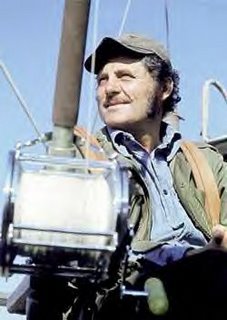.
"UNSAT" means unsatisfactory.
I was embarrassed to read this about my Navy in the New York Times:
Navy Pilots Who Rescued Victims Are Reprimanded
By DAVID S. CLOUD
Published: September 7, 2005
PENSACOLA, Fla., Sept. 6 - Two Navy helicopter pilots and their crews returned from New Orleans on Aug. 30 expecting to be greeted as lifesavers after ferrying more than 100 hurricane victims to safety.
Instead, their superiors chided the pilots, Lt. David Shand and Lt. Matt Udkow, at a meeting the next morning for rescuing civilians when their assignment that day had been to deliver food and water to military installations along the Gulf Coast.
"I felt it was a great day because we resupplied the people we needed to and we rescued people, too," Lieutenant Udkow said. But the air operations commander at Pensacola Naval Air Station "reminded us that the logistical mission needed to be our area of focus."
The episode illustrates how the rescue effort in the days immediately after Hurricane Katrina had to compete with the military's other, more mundane logistical needs.
Only in recent days, after the federal response to the disaster has come to be seen as inadequate, have large numbers of troops and dozens of helicopters, trucks and other equipment been poured into to the effort. Early on, the military rescue operations were smaller, often depending on the initiative of individuals like Lieutenants Shand and Udkow.
The two lieutenants were each piloting a Navy H-3 helicopter - a type often used in rescue operations as well as transport and other missions - on that Tuesday afternoon, delivering emergency food, water and other supplies to Stennis Space Center, a federal facility near the Mississippi coast. The storm had cut off electricity and water to the center, and the two helicopters were supposed to drop their loads and return to Pensacola, their home base, said Cmdr. Michael Holdener, Pensacola's air operations chief.
"Their orders were to go and deliver water and parts and to come back," Commander Holdener said.
But as the two helicopters were heading back home, the crews picked up a radio transmission from the Coast Guard saying helicopters were needed near the University of New Orleans to help with rescue efforts, the two pilots said.
Out of range for direct radio communication with Pensacola, more than 100 miles to the east, the pilots said, they decided to respond and turned their helicopters around, diverting from their mission without getting permission from their home base. Within minutes, they were over New Orleans.
"We're not technically a search-and-rescue unit, but we're trained to do search and rescue," said Lieutenant Shand, a 17-year Navy veteran.
Flying over Biloxi and Gulfport and other areas of Mississippi, they could see rescue personnel on the ground, Lieutenant Udkow said, but he noticed that there were few rescue units around the flooded city of New Orleans, on the ground or in the air. "It was shocking," he said.
Seeing people on the roofs of houses waving to him, Lieutenant Udkow headed in their direction. Hovering over power lines, his crew dropped a basket to pick up two residents at a time. He took them to Lakefront Airport, where local emergency medical teams had established a makeshift medical center.
Meanwhile, Lieutenant Shand landed his helicopter on the roof of an apartment building, where more than a dozen people were marooned. Women and children were loaded first aboard the helicopter and ferried to the airport, he said.
Returning to pick up the rest, the crew learned that two blind residents had not been able to climb up through the attic to the roof and were still in the building. Two crew members entered the darkened building to find the men, and led them to the roof and into the helicopter, Lieutenant Shand said.
Recalling the rescues in an interview, he became so emotional that he had to stop and compose himself. At one point, he said, he executed a tricky landing at a highway overpass, where more than 35 people were marooned.
Lieutenant Udkow said that he saw few other rescue helicopters in New Orleans that day. The toughest part, he said, was seeing so many people imploring him to pick them up and having to leave some.
"I would be looking at a family of two on one roof and maybe a family of six on another roof, and I would have to make a decision who to rescue," he said. "It wasn't easy."
While refueling at a Coast Guard landing pad in early evening, Lieutenant Udkow said, he called Pensacola and received permission to continue rescues that evening. According to the pilots and other military officials, they rescued 110 people.
The next morning, though, the two crews were called to a meeting with Commander Holdener, who said he told them that while helping civilians was laudable, the lengthy rescue effort was an unacceptable diversion from their main mission of delivering supplies. With only two helicopters available at Pensacola to deliver supplies, the base did not have enough to allow pilots to go on prolonged search and rescue operations.
"We all want to be the guys who rescue people," Commander Holdener said. "But they were told we have other missions we have to do right now and that is not the priority."
The order to halt civilian relief efforts angered some helicopter crews. Lieutenant Udkow, who associates say was especially vocal about voicing his disagreement to superiors, was taken out of the squadron's flying rotation temporarily and assigned to oversee a temporary kennel established at Pensacola to hold pets of service members evacuated from the hurricane-damaged areas, two members of the unit said. Lieutenant Udkow denied that he had complained and said he did not view the kennel assignment as punishment.
Dozens of military aircraft are now conducting search and rescue missions over the affected areas. But privately some members of the Pensacola unit say the base's two available transport helicopters should have been allowed to do more to help civilian victims in the days after the storm hit, when large numbers of military helicopters had not reached the affected areas.
In protest, some members of the unit have stopped wearing a search and rescue patch on their sleeves that reads, "So Others May Live."

















